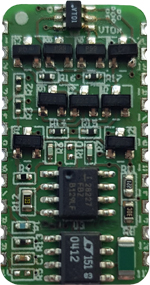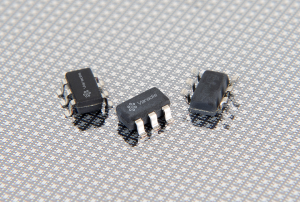Varadis Radiation Detection Sensors to Land on Moon
Varadis radiation sensors chosen by Center for Astronautical Physics and Engineering, National Central University in Taiwan for its Deep Space Radiation Probe
For the probe on this mission, the center has chosen the Varadis RADFET (Radiation Sensing Field Effect Transistors) VT01, mounted on an RM-VT01-A read-out module, which can detect a radiation dosage up to of 100 krad/1kGy. The RADFET, a discrete p-channel MOSFET optimized for radiation sensitivity, is sensitive to detect ionizing radiation including gamma rays, X-rays and protons.
“The ionizing radiation environment of outer space is a challenge that must be dealt with in spaceflight, due to both its degrading effects on spacecraft electronics, as well as its health effects on biological organisms,” says Loren Chang, Ph.D., Distinguished Professor at Center for Astronautical Physics and Engineering, National Central University. “As ionizing radiation levels are particularly serious in the deep space regions beyond Low Earth Orbit, it's crucial we measure radiation dose and dose rate, while also counting radiation induced bit errors in its flash memory.”
Due to the Varadis RADFET’s ability to accurately measure significant doses of absorbed ionizing radiation (up to 10 kGy/1 Mrad) without requiring power, Varadis radiation detection sensors have been designed into space exploration missions by international space agencies, including:
- NASA (National Aeronautics and Space Administration)
Varadis RADFETs measure radiation doses on the International Space Station and in the Orion crew module of Artemis lunar missions
- ESA (European Space Agency)
Varadis designs and manufactures plug-and-play radiation detection modules for ESA satellites
- JAXA (Japan Aerospace Exploration Agency)
Varadis RADFET was the radiation sensor of choice for JAXA programs Mission Detection test Satellite 1 (MDS-1) and Small Demonstration Satellite (SDS-1)
In addition to their use in space communications and exploration, Varadis radiation detection sensors are used in physics research, medical, security and public safety applications.
“We’re delighted and honored to have the opportunity to support the Center for Astronautical Physics and Engineering on this important lunar mission,” says Brad Wrigley, CEO of Varadis. “Varadis radiation detection sensors and modules are seen as a leading technology globally for radiation measurement; from space exploration through to cancer radiotherapy treatment. The ability to successfully serve such a diverse range of markets is true testament to the incredible work of our Varadis R&D team.”
About Varadis
Varadis, the leading provider of high-energy radiation detection sensors, provides RADFETs to some of the globe’s most recognized organizations. The company’s RADFETs circle Earth at 17,000 mph in the International Space Station as well as measure radiation levels created by particles travelling at 300,000 kilometres per second 220 miles below on Earth around CERN’s Large Hadron Collider.
Based in Cork, Ireland, Varadis leverages over 30 years of technology development in the radiation monitoring space to bring the Varadis RADFET range to global markets. Varadis is a spin-out company from Tyndall National Institute, a leading European research centre in integrated ICT hardware and systems.
René Williams
Varadis
rene@varadis.com
Visit us on social media:
Twitter
LinkedIn
Legal Disclaimer:
EIN Presswire provides this news content "as is" without warranty of any kind. We do not accept any responsibility or liability for the accuracy, content, images, videos, licenses, completeness, legality, or reliability of the information contained in this article. If you have any complaints or copyright issues related to this article, kindly contact the author above.


